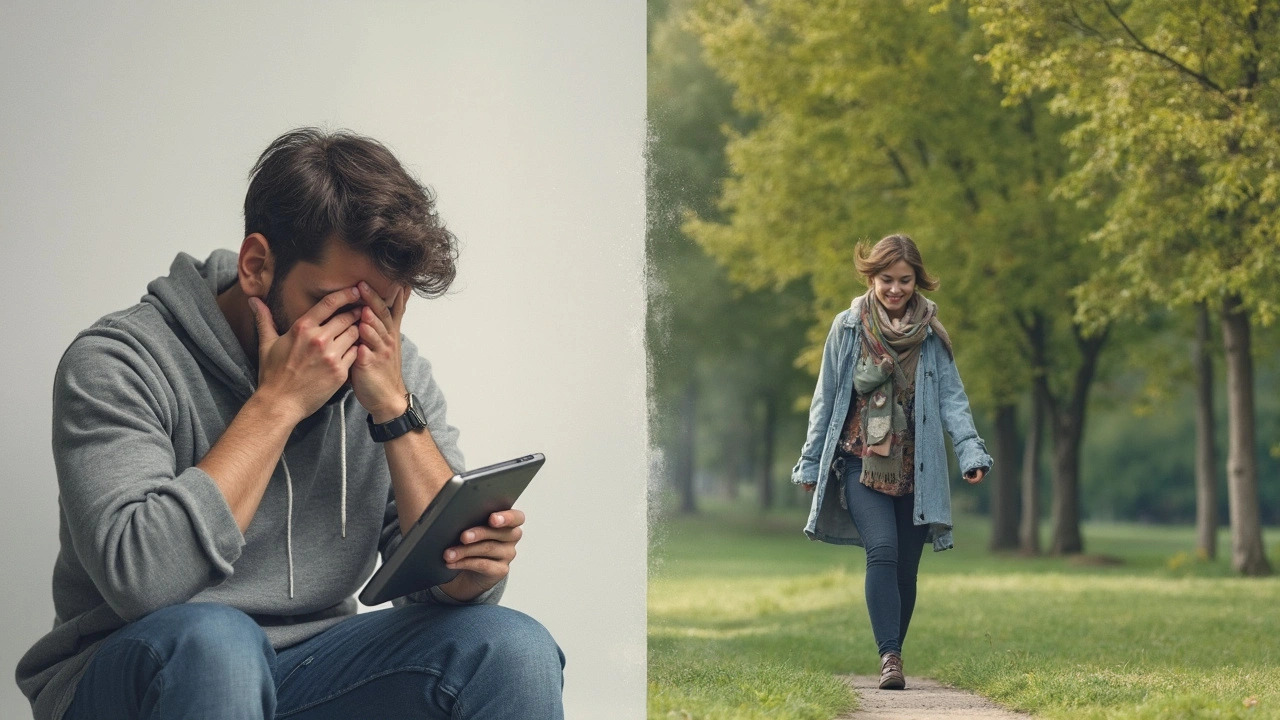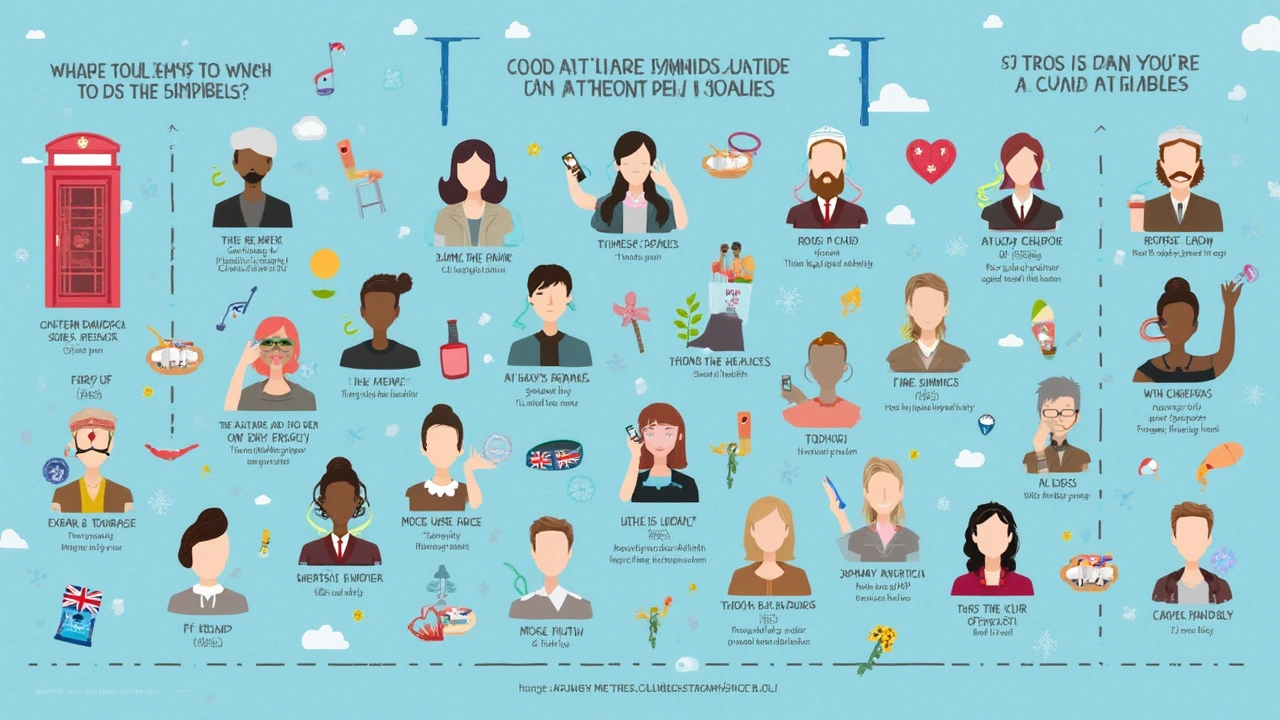
Ever scrolled online and wondered if watching or participating in adult entertainment is messing with your head—or maybe even helping? You’re not alone. There’s a lot of chatter, but very few straight answers about how adult content really affects our mental wellbeing.
So, let’s get one thing clear: adult entertainment is everywhere. It’s mainstream now, and with just a tap, you can access almost anything. But what happens after you hit play—mentally and emotionally? Some people feel relaxed or even more connected to themselves, while others notice anxiety, stress, or a drop in self-esteem. Everyone’s experience is personal, and that’s why being honest about your own feelings matters more than any headline or hot take.
It's not about judging choices—it’s about getting the facts so you can make better ones for yourself. Whether you’re looking for some stress relief, exploring your sexuality, or just curious about the effects, this guide is all about real talk, sharing what actually matters for your mental health—and how to avoid the common pitfalls.
- Key Takeaways
- Adult Entertainment and Your Headspace
- Possible Perks and Pitfalls
- How to Keep It Healthy
- Frequently Asked Questions
Key Takeaways
If you’re curious how adult entertainment ties into mental health, here’s what you honestly need to know, set out in simple bites for when you want the basics without the spin.
- Moderate use of adult entertainment is common—about 68% of adults in the US have viewed it, according to a 2023 Pew Research report.
- The mental impact depends a lot on the person. Some folks feel less stressed after engaging, while others might feel guilty, anxious, or experience a dip in mood.
- Heavy or compulsive use can sometimes impact real-life intimacy and relationships, and studies link frequent use with loneliness or lower self-esteem, but the science isn’t cut-and-dried.
- Having a supportive, honest approach—like being open with a partner or checking in with your own feelings—makes a big difference in how positive or negative the experience is.
- If adult entertainment starts interfering with daily life, sleep, relationships, or your mood, reaching out for support (like a therapist or online community) is a smart move.
Check out these stats for quick reference:
| Fact | Details |
|---|---|
| Viewership | 68% of US adults |
| Positive Effects | Stress relief, self-exploration, relaxation (most common reports) |
| Negative Effects | Guilt (24%), anxiety (17%), relationship tension (up to 16%) |
| Support Resources | Online therapy grew 40% since 2020, many address digital behaviors |
The big takeaway: Adult entertainment isn’t automatically bad or good for your mental health. It’s about how—and how much—you use it, and being honest about how it’s making you feel.
Adult Entertainment and Your Headspace
Let’s get real for a second: the connection between adult entertainment and mental health can be complicated. Some studies found that watching adult content can boost your mood temporarily, maybe because it helps you relax or lets you blow off steam after a stressful day. For others, though, it can trigger feelings of guilt, anxiety, or even loneliness—especially if you’re using it to fill a bigger emotional gap.
Did you know that nearly 70% of adults have viewed adult content at least once, according to a 2023 survey from Statista? That means almost everyone has some exposure, but the way it hits your headspace depends on your expectations, your habits, and even your beliefs about what’s “normal.”
There’s real talk out there about potential problems—like if adult entertainment starts messing with your real-life relationships or you find it hard to stop, even when it isn’t making you happy. Experts like Dr. Emily Rothman from Boston University put it straight: it’s mostly about how often you use it and why. Moderate use, with no shame or secrecy, usually doesn’t cause issues for most people. It’s when you feel out of control or end up hiding it that it can start to chip away at your self-esteem.
Some people even report using adult content to cope with stress, boredom, or sadness—the same way others might zone out on social media or binge-watch shows. It’s not all bad, but if you’re relying on it to avoid stuff you need to deal with, your mental health can take a hit.
| How Adult Entertainment Can Affect Your Mood | Percent Reporting Impact (2024 Study) |
|---|---|
| Temporary stress relief | 58% |
| Improved self-understanding | 34% |
| Feelings of guilt or shame | 29% |
| Increased loneliness | 18% |
| No noticeable effect | 39% |
If you’re wondering whether your viewing is healthy, just ask yourself: Is it making you feel better long-term, or are you stuck in a guilty loop? If it’s just a chill way to unwind, cool. If it feels stressful or like it’s getting in the way of life, it might be time to rethink your relationship with it.

Possible Perks and Pitfalls
Let’s get real about what adult entertainment can do for your mental health—good, bad, and everything in between. We’re not here to sugarcoat, but we’re not doomsaying either. Everyone’s reaction is different, but research and personal stories do show some common upsides and downsides.
- Adult entertainment can actually be a stress-buster for some folks. After a long day, it might offer a way to relax, explore fantasies, or just escape from daily worries for a while.
- It can also help people get to know their own sexuality better. Some find it easier to communicate desires or tackle awkward topics after they’ve seen what’s out there.
- For couples, sharing certain content can boost intimacy. It can even spark conversations about wants and boundaries you wouldn’t have otherwise.
But it’s not all roses. Too much time spent in front of a screen—especially if it’s replacing relationships or other healthy activities—can mess with your mood. Some studies link overuse to increased anxiety, lowered self-esteem, and in rare cases, trouble with everyday functioning.
- If you start skipping social events to stay home with your phone, or if content feels less enjoyable and more like a must, there might be a problem.
- Comparisons to what you see online can hit your confidence, especially if you forget that everything is staged for the camera.
- Some people report feeling more isolated or guilty after watching, especially if secrecy or shame is involved.
Check out how things can stack up, according to a 2023 survey on screen time habits and mental health:
| Potential Perks | Common Pitfalls |
|---|---|
| Reduces stress for 40% of users | Linked to anxiety in 32% of heavy users |
| Helps 27% feel more sexually confident | 20% report lower self-esteem after viewing |
| Boosts intimacy for 18% of couples | 11% struggle with relationship strain |
One thing’s clear: balance is everything. You’re not doomed if you enjoy adult entertainment, but ignoring the mental checks can sneak up on you. If you notice shifts in your mood, sleep, or relationships, it’s worth pausing and figuring out what’s up.
How to Keep It Healthy
It’s way too easy to lose track of your limits when you’re alone with a screen, especially since adult entertainment is available 24/7. So, how do you keep things balanced—where it helps you relax without messing with your mood or relationships?
First, know your own patterns. If you find yourself watching out of boredom or stress more than choice, it might be time to check in with yourself. The key here is treating it like any other screen time habit. For instance, a recent survey by the Kinsey Institute found that about 30% of people who used adult content frequently during lockdowns reported higher anxiety or trouble focusing. That’s worth noticing.
- Set time limits: Try using a timer or app blocker to keep screen time in check. No shame—everyone needs boundaries sometimes.
- Mix up your downtime: If adult entertainment is your only way to destress, add some variety. Maybe go for a walk, talk with friends, or do something creative.
- Watch for warning signs: If you’re feeling less excited about real-life connections, or things just feel off, take a breather. That’s a real signal, not just a rough day.
- Keep it private and secure: Use sites that are legit, offer privacy tools, and steer clear of sketchy links. Nothing kills a good mood faster than malware or leaked info.
- Be honest with yourself: Check how you’re feeling after—relaxed, guilty, numb? If something feels off, talk about it (with a friend or therapist) or journal for yourself.
Here’s a quick breakdown to see how different habits can play out:
| Habit | Impact on Mental Health |
|---|---|
| Occasional Viewing | Usually harmless, may boost mood short-term |
| Binge-Watching | Linked with increased stress, sleep problems |
| Hiding Usage | Makes guilt or anxiety more likely |
| Open Conversations | Reduces shame, normalizes the experience |
If anything you read here feels familiar and you want help, you’re far from alone. Thousands reach out to counselors every year for support managing their relationship with adult content. Sometimes just talking about it takes a ton of the pressure off. The point isn’t zero usage—it’s feeling good about your choices.

Frequently Asked Questions
Here’s a quick rundown of the most common questions folks have about adult entertainment and mental health. No sugarcoating, just clear answers.
Does watching adult content affect your mood?
Yes, it can go both ways. Some people feel relaxed or even happier after watching. Others might feel lonely, guilty, or more anxious. It really depends on your mindset, expectations, and habits. Studies have shown that using adult content now and then usually isn’t harmful, but doing it in secret, or way too often, can sometimes make anxiety or guilt worse.
Is adult entertainment addictive?
Most people use adult entertainment without getting hooked. But, if you feel like you have to watch even when it’s hurting your work, relationships, or mental health, that’s a red flag. There’s no official medical diagnosis for “porn addiction,” but compulsive use is a real thing. If this sounds familiar, it might help to talk with a therapist who gets the topic.
Can using adult entertainment affect relationships?
It can, for sure. Some couples use it together to spice things up or explore fantasies. For others, secret use or mismatched interests can cause tension or trust issues. The important thing is to talk openly with your partner, set boundaries that work for both of you, and check in regularly on how you both feel.
What’s the deal with shame or guilt after watching?
You’re not weird if you feel awkward or down after watching adult stuff. Sometimes this comes from messages we picked up about what’s “okay” or “not okay.” If shame or guilt keeps popping up, it could help to rethink where those feelings are coming from and talk with someone who’s non-judgmental—like a sex-positive therapist or counselor.
Are there safe ways to use adult entertainment?
- Set limits on screen time so it doesn’t push out social stuff or sleep.
- Stick to reputable websites to avoid scams and harmful content.
- Take breaks to check in with your mood—notice how you actually feel before and after.
- If you’re in a relationship, talk openly with your partner about comfort zones.
The bottom line is that everyone has a different relationship with adult entertainment. If you notice it’s stressing you out more than helping, don’t be afraid to reach out for support. You’re not alone.







